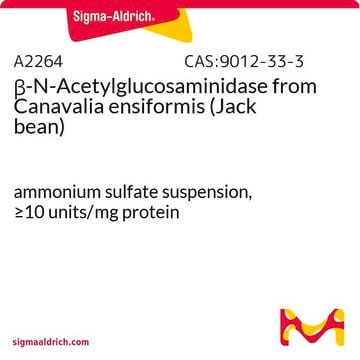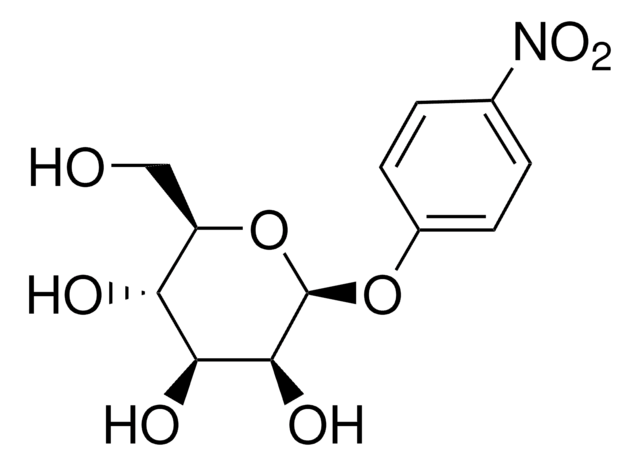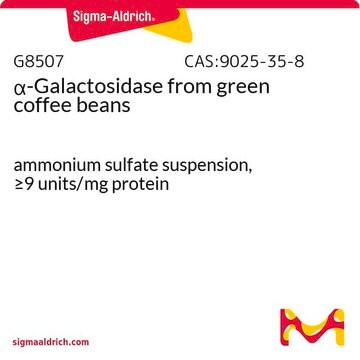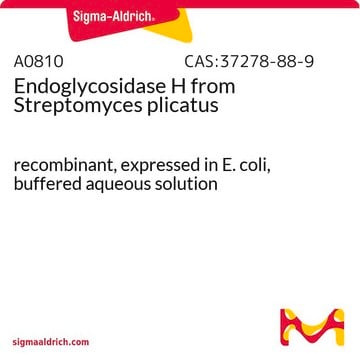M7257
α-Mannosidase from Canavalia ensiformis (Jack bean)
ammonium sulfate suspension, ≥15 units/mg protein (biuret)
Synonym(s):
α-D-Mannoside mannohydrolase
About This Item
Recommended Products
biological source
Canavalia ensiformis
Quality Level
form
ammonium sulfate suspension
specific activity
≥15 units/mg protein (biuret)
foreign activity
β-galactosidase, β-N-acetylglucosaminidase, α-galactosidase and α-L-fucosidase <0.05%
storage temp.
2-8°C
InChI
1S/Zn/q+2
InChI key
PTFCDOFLOPIGGS-UHFFFAOYSA-N
Looking for similar products? Visit Product Comparison Guide
General description
Application
- for the digestion of neutral glycans.
- to remove O-glycans from recombinant β-glucosidase
- for the inhibition of renal fibroblasts proliferation
Biochem/physiol Actions
Unit Definition
Physical form
inhibitor
substrate
Signal Word
Danger
Hazard Statements
Precautionary Statements
Hazard Classifications
Resp. Sens. 1
Storage Class Code
11 - Combustible Solids
WGK
WGK 1
Flash Point(F)
Not applicable
Flash Point(C)
Not applicable
Personal Protective Equipment
Certificates of Analysis (COA)
Search for Certificates of Analysis (COA) by entering the products Lot/Batch Number. Lot and Batch Numbers can be found on a product’s label following the words ‘Lot’ or ‘Batch’.
Already Own This Product?
Find documentation for the products that you have recently purchased in the Document Library.
Customers Also Viewed
Articles
Instructions for working with enzymes supplied as ammonium sulfate suspensions
Our team of scientists has experience in all areas of research including Life Science, Material Science, Chemical Synthesis, Chromatography, Analytical and many others.
Contact Technical Service













